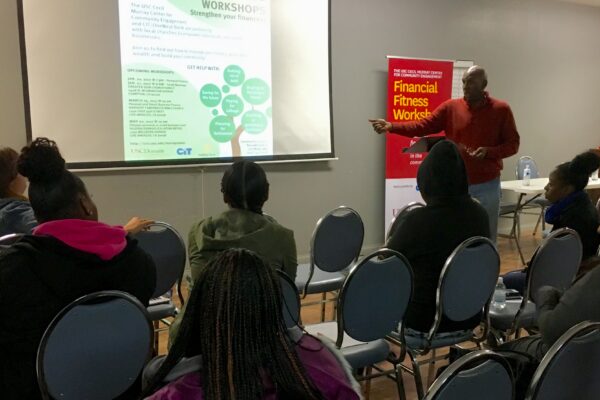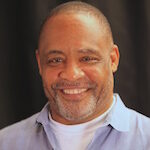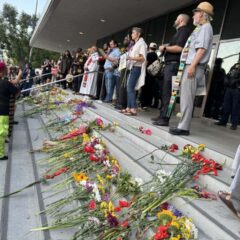The post originally appeared in the Los Angeles Sentinel.
The church has a dark hidden secret. It has been a secret for decades. The secret is churches have a number of the same people regularly asking for financial assistance, treating the church like a bank rather than a place of worship. The church pays their rent, utilities, car notes, telephone service and groceries on a monthly basis. These are not seniors on fixed income, but these are young and middle aged adults. Some of them are unemployed, living on the streets, but a large number of them go to work every day. The church may consider changing the “benevolence” paradigm.
The church is called to care for least. The Bible says in Matthew 25:42: “For I was hungry and you gave me nothing to eat, I was thirsty and you gave me nothing to drink, (v. 43) I was a stranger and you did not invite me in, I needed clothes and you did not clothe me, I was sick and in prison and you did not look after me.” It is ok to host a fish fry for church fellowship, but the church must teach people to own the fishpond.
The church may consider empowering people with tools to take charge of their financial destiny. At the USC Cecil Murray Center for Community Engagement, our new Financial Fitness Workshops aim to help churches do just that, bringing financial literacy trainings into the communities where they are needed most. Cecil Murray is a former pastor of First AME Church and Tansey Chair of Christian Ethics at USC. He teaches people to own instead of rent and to save more and spend less.
Churches are planted to meet the felt needs of the community. Jesus said, “The poor will always be with us.” Yet, churches also can be true instruments of financial change. Bankers, investment advisors, insurance agents may offer free classes on financial literacy. Youth clubs may start an investment club. The church may host trips to local banks to open savings accounts.
Most people in low-and-moderate-income communities have a limited income, but they have done much with a little for a long time. What is needed are more tools to help leverage existing resources. Most successful investors started off with very little. Proper training and mentoring may turn a little into much.
The Financial Fitness Program starts with financial literacy workshops, hosted by local churches. These workshops, in partnership with CIT/OneWest Bank, will offer community members information on budgeting, savings, insurance, retirement planning, homeownership, credit repair and a whole host of other subjects related to personal wealth management.
Our long-term vision is that churches will become centers of financial empowerment, not through cash assistance but through the dissemination of knowledge and resources. Churches can partner with banks and financial institutions to offer financial tools, teachers and services for free to all interested participants.
The USC Murray Center and CIT/OneWest Bank will be hosting a breakfast for faith leaders to find out more about the Financial Fitness Program on Friday, February 17 (click the link to request an invite).
As part of this new program, free Financial Fitness Workshops will be offered at churches in South Los Angeles, North Long Beach and Boyle Heights. Click here to learn more.
Mark Whitlock is a contributing writer for the USC Center for Religion and Civic Culture.





